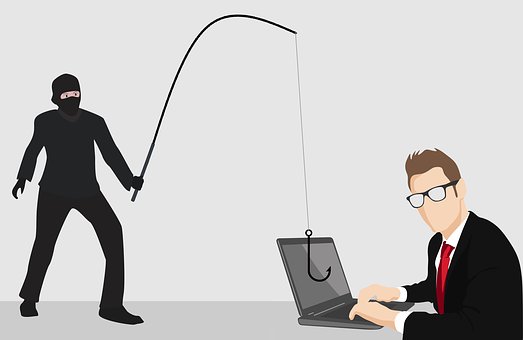You have to use bait in an attempt to catch a fish, and the better bait you use, the more chance you have of a bountiful harvest. The same holds true for the other kind of phishing. Phishing is when cyber criminals masquerade as someone else to acquire private information such as passwords, credit card and social security numbers, bank account information and more. Most commonly, these scams will try to trick you into unknowingly installing spyware on your computer; thereby creating backdoor access to all your personal information that is stored.
These types of cyber trespassers are continually improving their game, so scams are getting better and better (Remember the better bait – better bite reference?). They often try to impersonate a trustworthy institution – like Microsoft – to encourage you to open their lethal link. For instance, there are security alert emails currently circulating from criminals claiming that they are Microsoft and that your account is at risk. To make them seem even more credible, they may even personalize an email with your name or other personal information they were already able to acquire. They will also often try to create a sense of urgency – like you need to act immediately – to elicit a quick emotional response.
Don’t get hooked! It’s always better to think things through, so take your time to look closely at these types of emails. See if you notice anything suspicious, such as weird wording, spelling errors and informal greetings. You can also gently rest your cursor over the link to check that the web address actually matches what they are saying it should be.


